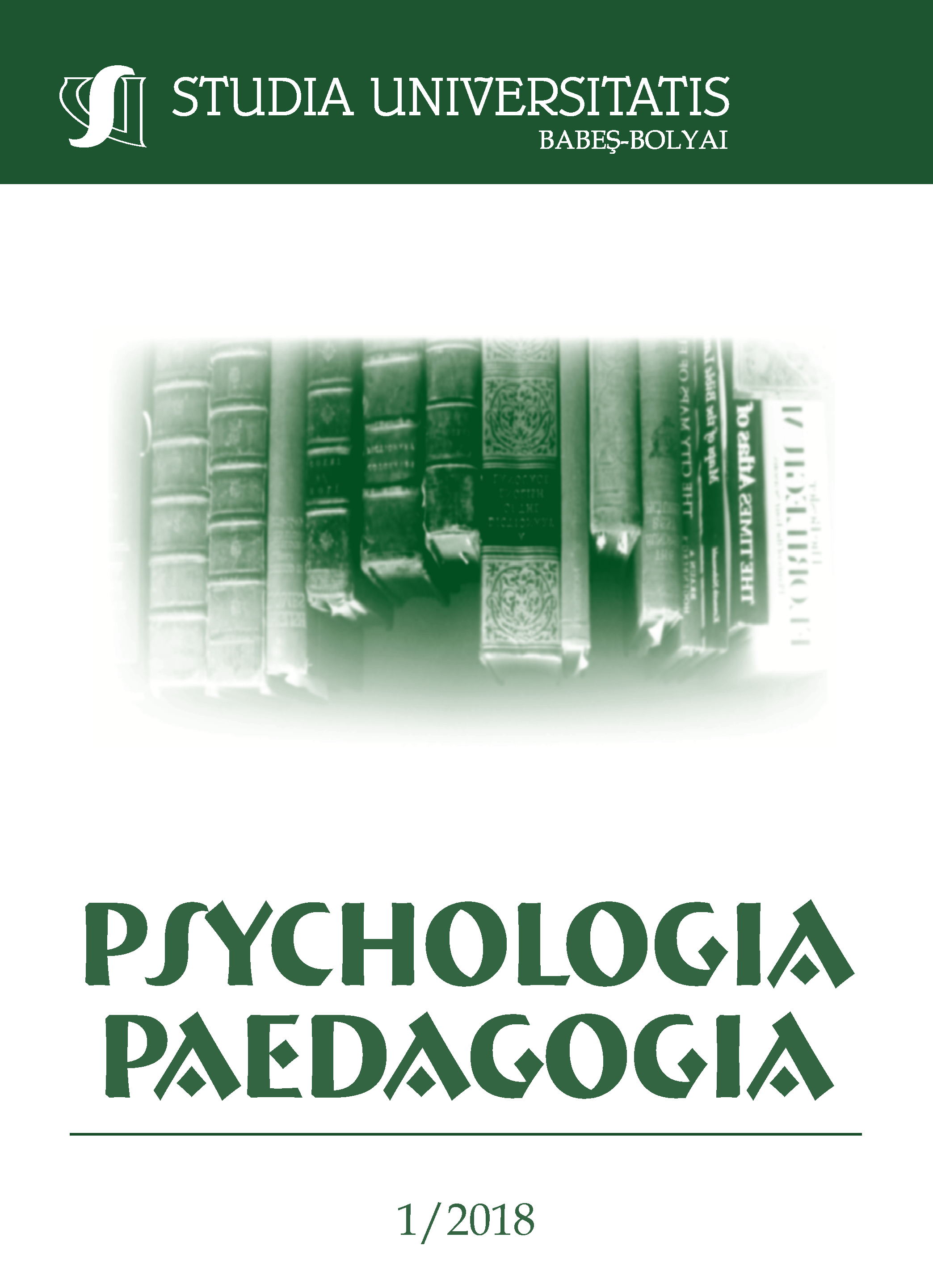ACTIVE LEARNING - THE CONDITION OF OBTAINING QUANTIFIABLE SCHOOL RESULTS IN NATIONAL EVALUATION TESTS
DOI:
https://doi.org/10.24193/subbpsyped.2018.1.06Keywords:
active learning, discovery-based learning, heuristic approach, prob-lem-based learning, National Tests.Abstract
Our research analyses in detail significant aspects that are specific to active learning with the purpose of optimizing school performance in primary school. In this respect, the scientific approach follows the current methodological directions the main focus of the specialist’s being the interest in activation and participatory strategies. The work depicts learning aspects in the following subjects: Romanian, Mathematics and Science, following a heuristic approach, a discovery- and problem-based learning, in teaching and in the acquiring of the specific content. The main focus was to observe to what degree the use of these teaching strategies can lead to obtaining superior school results that are quantifiable in National Testing.
Aktives Lernen-Voraussetzung für das Erhalten Quantifizierbarer Schulergebnisse in nationalen Evaluationstests. Das aktive Lernen stellt eine Herausforderung und einen Aufruf zur Selbsreflexion aufseiten der Interessierten dar, die Anteil an die Innovation und Effizientisierung des didaktischen Vorgehens nehmen. Das Syntagma aktive Belehrung wurde sich durch die Stärkung der positiven Rolle von der sozialen Dimension im Falle vom Lernen verschrieben. In der Theorie und Praxis der heutigen Didaktik kennt das Problem der aktiven Belehrung neue, komplexe, interdisziplinäre wissenschaftliche Ansätze, die von Argumenten unterstützt werden, die eine aktive und nachdenkliche Teilnahme von dem Schüler an Lern- und Bewertungsverfahrens erfordern.
Schlüsselwörter: aktives Lernen, entdeckendes Lernen, das heuristische Verfahren, problemorientiertes Lernen, Nationale Prüfungen.
References
Bocoș, M., Jucan D. (2008) – Fundamentele pedagogiei: teoria și metodologia curricumului; repere și instrumente didactice pentru formarea profesorilor, Editura Paralela 45, Pitești.
Bocoș, M. (2013) – Instruirea interactivă. Repere axiologice și metodologice, Editura Polirom, Iași, pag. 51, 96.
Chiș,V. (2005) – Pedagogia contemporană – pedagogia pentru competențe , Editura Casa Cărții de Știință, Cluj-Napoca, pag. 26.
*** (1998), Curriculum Național – Cadru de referință, M.E.N. – C.N.C., Editura Corint, București.
*** (2011), Legea Educației Naționale cu modificările și completările ulte-rioare, http://www.fsli.ro/Legislatie/Legi/LEN-Nr.1-din-2011-actualizata.pdf
*** (2014), Recomandarea 2006/962/CE a Parlamentului European și a Con-siliului din 18 decembrie 2006 privind competențele-cheie pentru învă¬țarea pe tot parcursul vieții Regulamentului de Organizare și Funcțio¬nare a Unităților de Învățământ Preuniversitar, Capitolul 5 „Evaluarea beneficiarilor primari ai educației”.
Downloads
Published
How to Cite
Issue
Section
License
Copyright (c) 2018 Studia Universitatis Babeș-Bolyai Psychologia-Paedagogia

This work is licensed under a Creative Commons Attribution-NonCommercial-NoDerivatives 4.0 International License.





